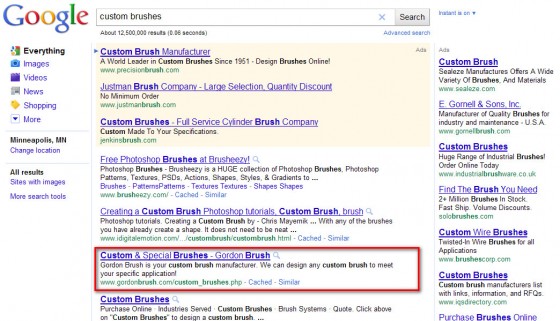In the SEO community, there is much debate on just how important rankings are to success.
On one hand, we love to watch rankings to see if the changes we’ve made have helped us in the search engines. If you do “A,” and your site ranks better, then doing “A” is successful. But if you do “B,” and your site ranks worse, then you might not want to do “B” anymore. It’s simple, easy to understand and easy to track over time.
On the other hand, the search engines are giving more and more personalized search results. So, if you log in to your Google account and do a search, you’ll see different results than you would if you weren’t logged in. Additionally, the search engines use your IP address to show you geographically relevant results. So, if you do a search in Minneapolis, MN and do the same search when in San Jose, CA, you will probably see different results. Add in that the search engines use of multiple data centers (that can yield different results) and it gets pretty hard to tell where you really rank. So much for rankings being a simple success metric.
But there’s another aspect to measuring rankings that often gets ignored: the competitive landscape of the search results pages. Let me give you an example.
Ranking #3 is the Same as Ranking #1?
I work with a company who makes custom brushes. t’s no surprise that the keyword phrase “custom brushes” is on our list of desired terms. After a lot of hard work, we’ve made it all the way up to #3 in Google. That’s great, but #1 is better, right?
Not necessarily.
When you look at the landscape of Google’s search results page for “custom brushes,” it’s pretty clear that Google sees more than one type of custom brush. Not only do you have the actual, physical brushes that my client sells, but there are also custom Photoshop brushes. The first two results are for Photoshop brushes. Not surprising, as there are probably more people looking for Photoshop brushes than custom-made industrial brushes
So, although my client ranks #3 for “custom brushes” on Google, they are the FIRST brush manufacturer on the page. Because of the landscape, ranking at #3 is pretty darn good in this case.
Although a relatively simple metric to measure, rankings aren’t always what they appear. Rankings can be deceptive if you’re logged in to your Google account, in a different geographic area or if your keyword has multiple meanings.







